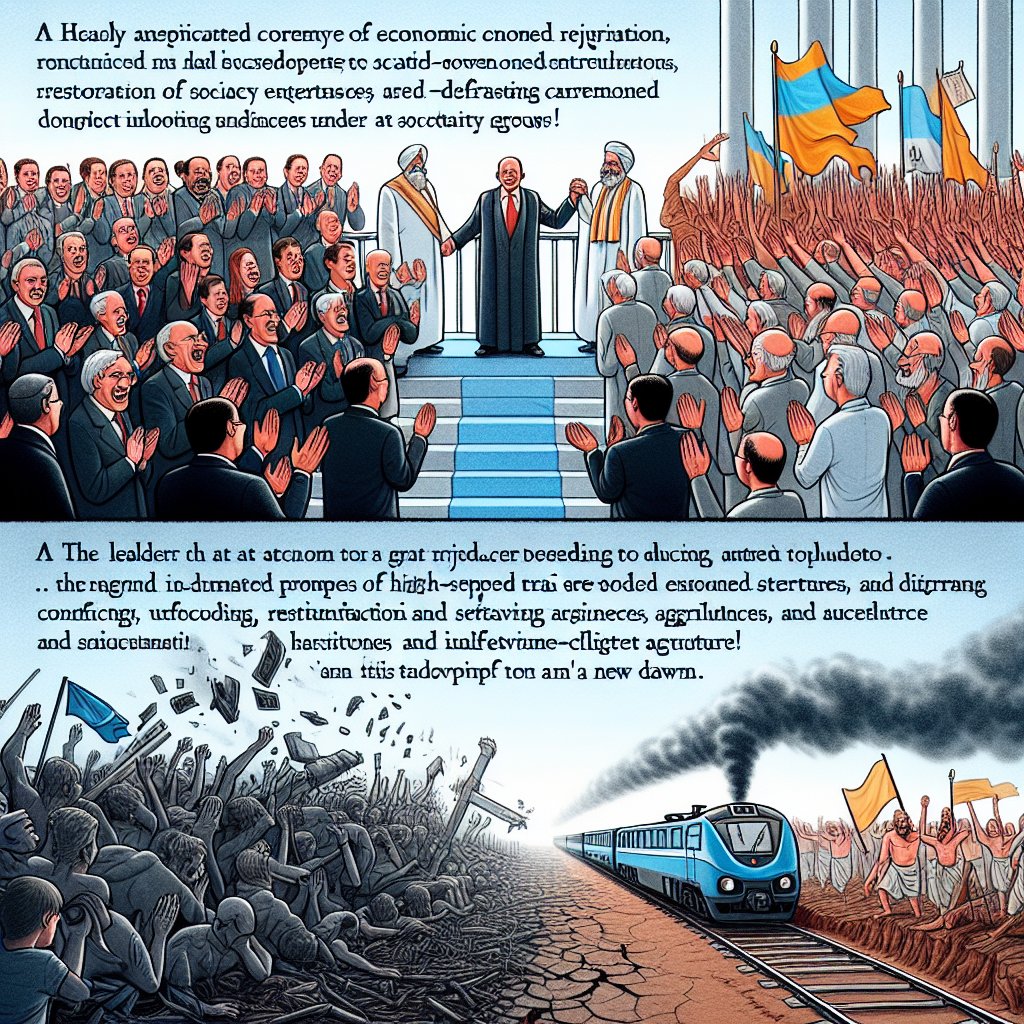Content created by AI
The Hollow Progress of President Cyril Ramaphosa's New Dawn
When Cyril Ramaphosa was sworn in as the President of South Africa, riding the tide of Ramaphoria, many envisioned a transformed nation emerging from the shadow of the Zuma administration. With wide-ranging support from various societal groups, Ramaphosa championed promises of economic rejuvenation, the restoration of state-owned enterprises, and stringent anti-corruption measures under the banner of a "New Dawn" for the Rainbow Nation.
However, a half-decade into his presidency, the dreams marketed to the South African public and international observers resemble a mirage, dissolving under the harsh realities of persistent power cuts, dwindling business confidence, and a string of unmet pledges. His rhetoric of high-speed trains and self-sustaining agriculture, voiced with vigor in the State of the Nation Address (SONA) of 2019, stands in stark contrast to the daily lives of South Africans, with the country's direction marked more sharply by stagnation than progress.
The well-publicized train ride that turned a 45-minute journey into an hours-long ordeal became a metaphor for Ramaphosa's presidency—a stark wake-up call from visionary speeches to on-ground dysfunction. Infrastructure, once the flagbearer of a hopeful future, has crumbled under mismanagement, and the government displays a growing incapacity for adequate social and educational resourcing, highlighted by overarching budget constraints.
The economic landscape, predicted to be fertile under his watch, has yielded a marked decay in key sectors such as mining and manufacturing, causing a ripple effect impacting small and medium-sized enterprises. The load shedding crisis, managed under Eskom, has continued unabated, becoming a central factor in a deteriorating economy and the substantial loss of around 800,000 jobs as per the Minister of Electricity's estimates.
Against the backdrop of soaring unemployment rates and an education sector bracing for significant cuts in funding, Mcebisi Jonas, among others, articulates a sentiment of leaderless governance, with multiplication of plans but a void in decisive action and result-driven leadership. Critics such as Mmusi Maimane and Professor Emeritus Raymond Suttner voice concerns of a presidency rich in symbolic gestures but poor in substance and initiative.
As the Ramaphosa administration struggles to maintain credibility, notable incidents such as the Phala Phala scandal only serve to reinforce perceptions of hypocrisy concerning his anti-corruption stance. At the sunset of his first term, the lustre of the promised "New Dawn" has considerably dimmed, with an electorate increasingly aware of the chasm between the leader's pronouncements and the tangible realities of governance in South Africa.










